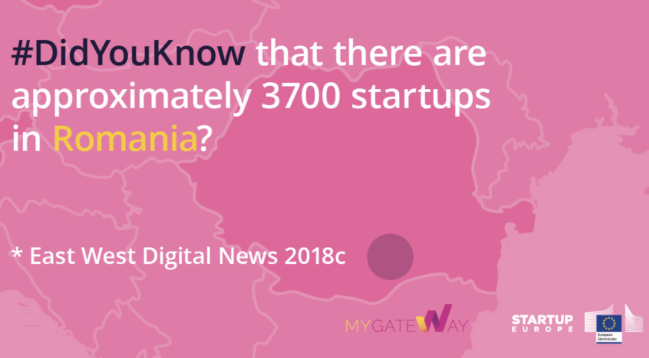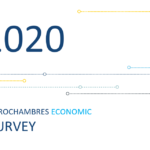There are around 3700 tech startups in Romania, according to MY-GATEWAY, a project that focuses on three CEE countries: Romania, Slovenia and the Czech Republic. This figures confirm me some other estimations underlined recently:
- Over 2,000 Romanian companies are directly predisposed to expanding abroad, and the companies with the biggest internationalisation potential are those that are industry leaders on the local markets, tech start-ups that are “born global” and high-growth enterprises. These are the conclusions of the Start-Up Bridge project I manage in Romanian Business Leaders Foundation.
- 10% of Romanian tech startups have simultaneous access to funding and mentoring. These are the conclusions of a study undertaken by one of my clients in the PR consultancy area.
I recommend you the study for their very serious approach. The authors worked for at least one year at the research part and I remember that I was interviewed for this study in the summer of 2018.
3 others important conclusion about Romanian Entrepreneurship Ecosystem:
1. Romania is an Early-stage market. In “Early-stage markets,” Romania is standing next to Croatia, Georgia, Kosovo, Macedonia, Serbia and Ukraine. In these countries, startup ecosystems are at various phases of development (but clearly not mature yet), and startup investment volumes per capita are more substantial by regional standards.
2. Romanian Universities are good, but we do not have successful academic spin-offs. The Romanian entrepreneurial ecosystem appears relatively rich in terms of universities involved in entrepreneurship education and in the presence of actors, such as incubators, accelerators and others business facilitators. However, there is very limited evidence of academic spin-offs from universities in Romania, and even less so of successful academic spin-offs.
3. Obstacles faced by Romanian Scale-ups and Start-ups
• Access to large markets
• Securing the funds needed for growth
• Lack of solid connection with relevant networks
• Limited exposure to new funding opportunities, EU funds in particular.
• Lack of human resource for business development
• Need for improvement of entrepreneurial education and training







